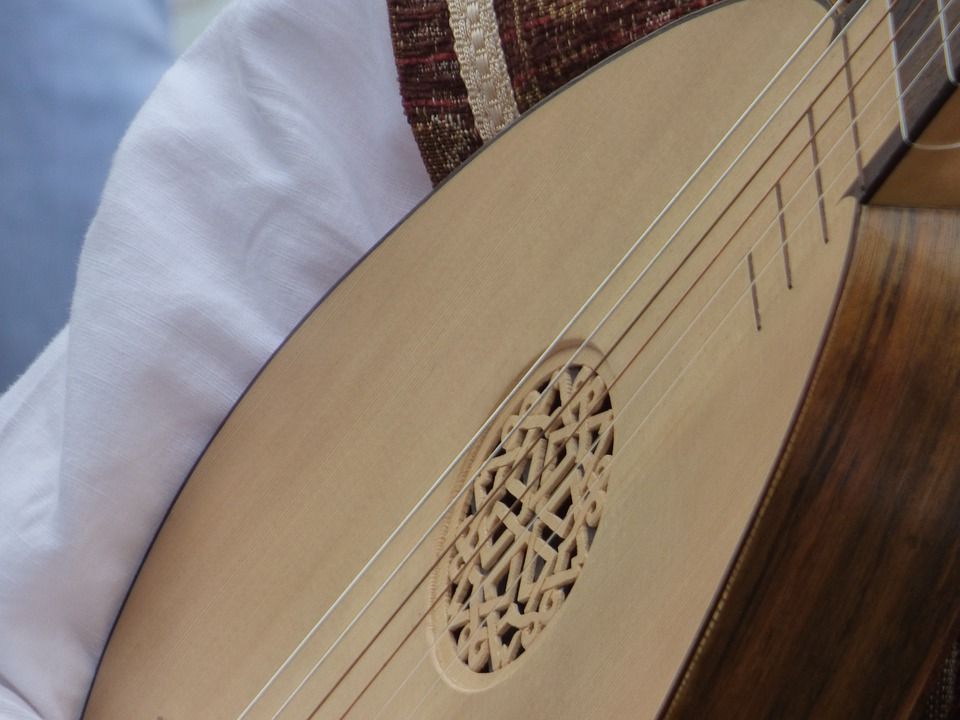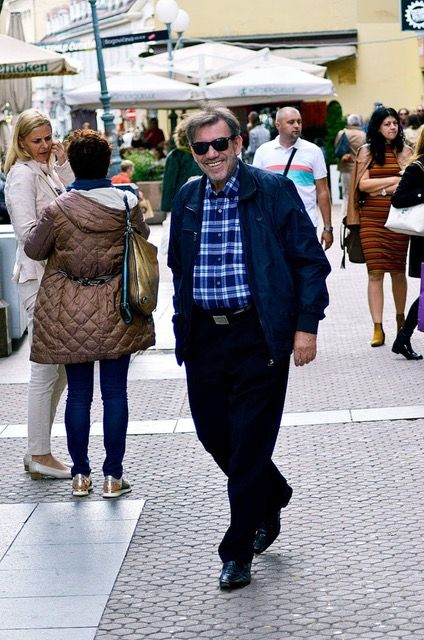VIDEO: PlayStation 5 Release in Croatia Marked by Klapa and Traditional Instruments
December 13, 2020 - The PlayStation 5 release in Croatia has been marked by the traditional music of Croatian regions.
The PlayStation 5 is one of the most anticipated releases in the gaming world, so much so that it achieved the highest launch month sales for a video game console in United States History since its debut there on November 12.
Thus, to mark the release of the PlayStation 5 console, PlayStation Croatia, in partnership with musicians from several Croatian regions, recorded the opening sound of the new console authentically, and characteristic for each Croatian region using traditional instruments and song, reports HRTurizam.
It has been 25 years since the arrival of the first PlayStation console on the European market and during those years the sound reproduced when launching the PlayStation console is one of the features by which every PlayStation generation is remembered and recognized.
Thus, a music tour of Croatia was recorded, from Slavonia, Istria, Dalmatia, and Zagorje to Petrinja, in which the opening sound of the PlayStation 5 console was recorded on the Slavonian tamburitza, Istrian sopila, Zagorje bass, brass instruments, and Dalmatian klapa.
“With the opening sound of the PlayStation 5 console, we made a music tour all over Croatia! With the Slavonian sound of the tamburitza, the Dalmatian performance of the klapa, the Zagorje version on the bass, the sounds of Istria on the flutes, and a touch of Petrinja with brass instruments, the sounds of the PlayStation 5 console received new life with traditional Croatian instruments. The tamburitza ensemble Rubato, KUD Zlatela Kršan, Marko Horvat, Klapa Sebenico and Gradska limena glazba Petrinja took part in the recording," said PlayStation Croatia.
Videos were released with recognizable locations around Croatia, like Rovinj and Petrinja, an authentic Slavonian village near Slavonski Brod, the fortress of St. Mihovil in Šibenik and the Veliki Tabor castle, which you can find below.
To read more about coronavirus in Croatia, follow TCN's dedicated page.
VIDEOS: Amazing New Google Project Shows Croatian Culture to the World
September 18, 2020 - Incredible new video series explore Croatian culture, its natural assets, and the country's rich traditions, a collaboration with Google
Steeped in history and tradition, Croatian culture is incredibly diverse. Recognised as being of high value to the country's appeal and its understanding of itself, many items from this rich heritage appear on the protected UNESCO list.
The Croatian National Tourist Board has teamed up with Google Arts & Culture and partners The Museum of Arts and the Museum of the Sinjska alka to produce an incredible series of videos that explore this cultural heritage.
From arts & crafts to music and dance, natural assets and architecture, the new videos show off the rich menu of traditions assets that make Croatia such an incredible country. With so many items included on the protected UNESCO list, there's always something more you can learn about Croatia, no matter how many times you visit.
Lace-making, costumes of folklore, ancient instruments, time-honoured recipes, beloved festivities and distinct, regional styles of music are just some of the facets of Croatian culture explored in the videos. Now, people from all over the world can explore Croatian culture and heritage before they even arrive. The menu of videos and accompanying media is presented in both English and Croatian.
Some of the videos in the series are not new, but they have been selected by the Croatian National Tourist Board for inclusion as they are the best at showcasing their particular aspect of Croatian culture. Alongside the video presentations, there are a wealth of photographs and informative texts. You can view the whole new collaboration with Google Arts & Culture here
For the latest travel info, bookmark our main travel info article, which is updated daily.
Read the Croatian Travel Update in your language - now available in 24 languages
Dalmatian Students to Uphold Klapa Traditions in Zagreb
Far from the calm yet rugged shores of Dalmatia in the Croatian capital of Zagreb, Dalmatian students are set to showcase Dalmatia's rich history with traditional klapa singing at the seventh student klapa festival.
As Gordana Igrec/Morski writes on the 16th of March, 2019, Klapa music can be heard up and down the Dalmatian coast and is an intrisic part of Dalmatian culture. From Dubrovnik and the extreme south of Dalmatia up to northern Dalmatia, many different groups exist from area to area and from city to city.
The word klapa means ''group of friends'' and this type of a cappella singing, which focuses mainly on romance and love, as well as on the sea and various parts of Dalmatia, traces its long roots back to littoral church singing.
The seventh festival of student klapa organised by the Split students' association will be held on March the 23rd, 2019, at the Student Center in Zagreb (Studentski centar, Savska 25), starting at 20:30.
For the seventh year in a row, the festival offers students the opportunity to be part of a traditional and cultural event which works to present the richness of Dalmatian musical heritage to the public and to continental Croatia. All those interested in this type of music are invited to come and showcase their talents and present Zagreb with one of the most influential and recognisable symbols of Dalmatia - klapa singing. There's still time to register.
When one walks the usually busy streets of the very central European City of Zagreb, the sights and sounds of Dalmatia appear a world away. Owing to this festival, the capital will become a hub for the sounds of the city's resident Dalmatian youth, as it has been in previous years.
In this way, Dalmatian students are able to freely continue to cultivate their klapa singing traditions and their culture away from their coastal homes, and further enrich the continental Croatian City of Zagreb, where they have come to study and work, and where many will remain permanently.
Make sure to follow our dedicated lifestyle page for much more. If it's just Zagreb you're interested in, give Total Zagreb a follow.
Click here for the original article by Gordana Igrec for Morski
Swiss Stage for Croatian Diaspora Performers in 2019
25th of November 2018 - That music is deeply rooted in the Croatian genes is a simple fact. Just look around a little bit, if you have never given it a thought, and you will realise that almost every village has its own dance and its own song. At least one, that is. This extends far from the country's borders and into the Croatian diaspora, and next year they'll have no less than a Swiss stage.
If you look alongside the coast, you can hardly find a hamlet without a ''klapa''.
And then all those festivals of all sorts (of music), everywhere. Folk, pop, jazz, new music, classical, experimental, you name it. However tiny, Croatia has given a noticeable contribution to the music of the world. Archives and museums can show you how music has been important over here since centuries. As an example, in the Museum of the Pharmacy in Dubrovnik, you can see a sheet of music from the early 12th century.
In the vicinity, just down the main street, you could find how Luka Sorkocevic, a local composer, wrote symphonies, a brand new music form, at the same time Haydn and Mozart were introducing it in Vienna.

Yes, we love music, and we love to sing. Don’t you?
There is quite a number of festivals of light music in the country, but there is someone who is not satisfied with the chances they offer to the Croats living abroad. His name is Zoran Škugor, and he has decided to organise a festival for all the Croatian diaspora on a Swiss stage, more specifically in Zurich.
Zoran is an ''old-timer'' in the field. He has been in the business for almost 50 years, has managed a long list of musicians and his musical productions are quite uncountable. You know, the festivals at home are hardly penetrable to a (Croatian) musician living abroad. Each festival has its own circles, quite locally oriented, somebody from abroad would have to jump over many obstacles in order to be recognised and valued as ''worthy''.

Zoran Skugor
''Knowing thousands of our people from diaspora, and having been asked by quite some talented Croats about how and why it is impossible for them to appear over here, I decided to organise a festival for all the Croats regardless of their residence, from Australia and both Americas to Europe. I joined hands with the Capo Music Production (CMP), established purposely and our first Music Festival of the Croatian Diaspora will take place in Zurich in February, 2019!'' says Zoran.
So good! Now what are the prerogatives to participate?
Any musician can apply by simply sending his new, still unpublished work to one of the two e-mail addresses: This email address is being protected from spambots. You need JavaScript enabled to view it. or This email address is being protected from spambots. You need JavaScript enabled to view it. . The composition should be between 3 to 3,5 minutes long, and it should be submitted to us not later than the 15th of December this year. A professional jury will make a final selection and there we go. The Festival is going to have its awards and a Grand Prix, and all compositions will be released on a festival CD.
Any particular limitations in genres?
We will start with light, pop rock, tamburitza and klapa (vocal, a cappella). We think that those four genres represent the most popular kinds of music among the Croats all over the world, and, not less, our musical roots will be there as well. We do hope that the festival will become traditional and that by further promotion of the artists participating it will contribute to the Croatian name around the world and a welcome refreshment and joy of music and being together to the Croats around the globe.
With precise dates of the Festival to be announced soon, if you are a Croat anywhere in the world and write music, or know someone who does and want to make a career out of it, pass this on and do not miss this very special opportunity yourself! Even as a member of the audience as you will have your say as a part of the jury of onlookers of those on the Swiss stage. Get ready and sing along!

Make sure to keep up with more information like this by following our dedicated Croatian Diaspora page.
Šibenik Klapa Impresses European Parliament
Brussels gets to hear the sounds of Šibenik.
Šibenik Students Sing in Brussels!
The Belgian capital gets a taste of Dalmatia.
Christmas Concerts in Vienna and Salzburg, the Croatian Way
Two popular destinations in Austria are about to get a dose of Croatian Christmas carols
Most Exclusive Klapa Concert in History: 4 Tickets to Be Sold in Total!
Fancy a music show for a very selected audience?
Local Klapa to Sing in Streets of Dubrovnik Once Again!
Five Dubrovnik Klapa groups will enchant both visitors and locals to our city.


